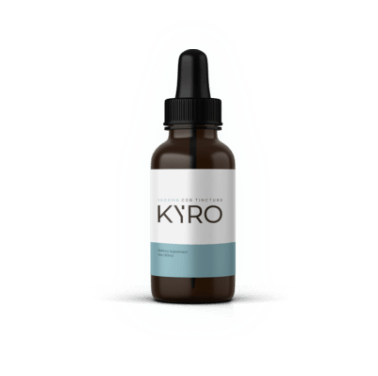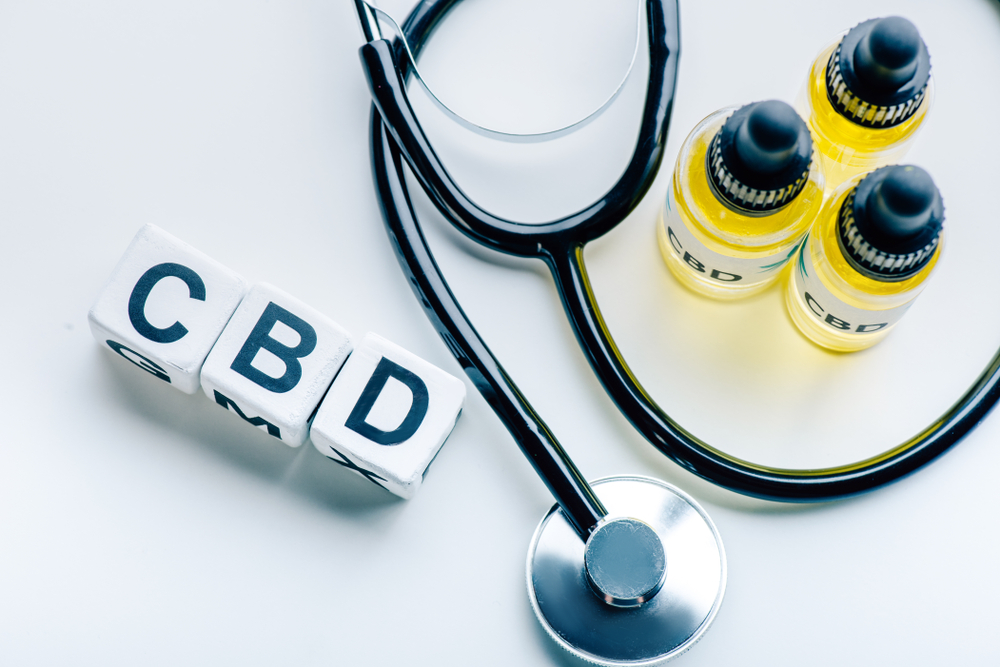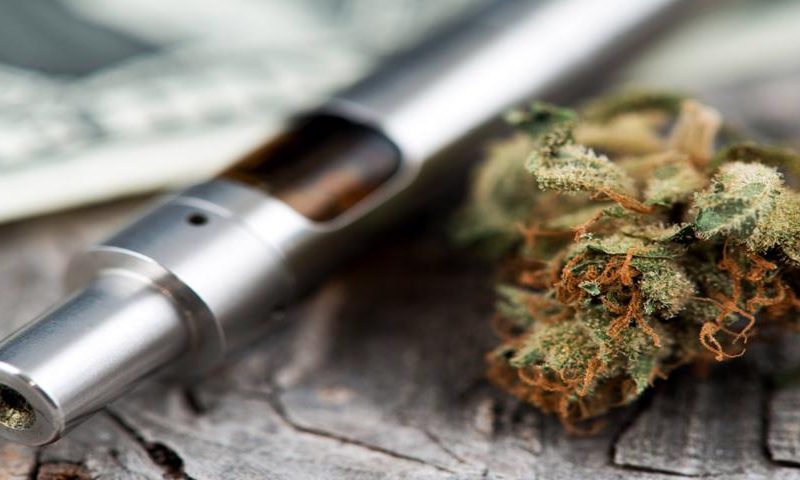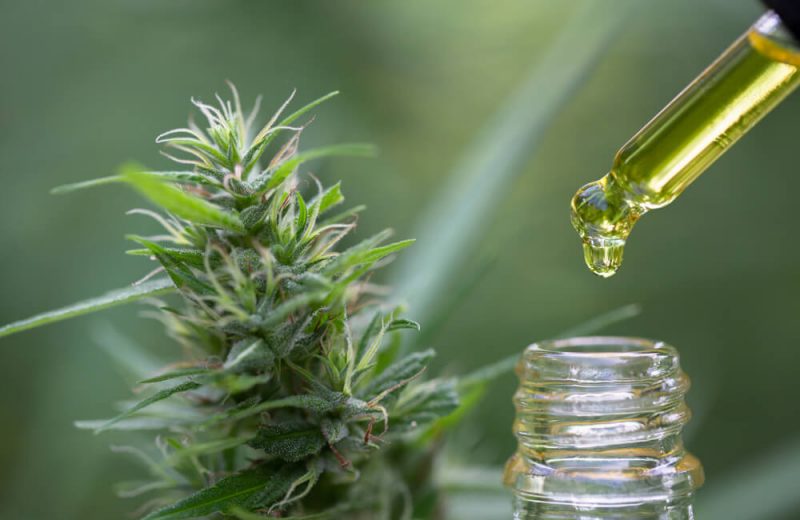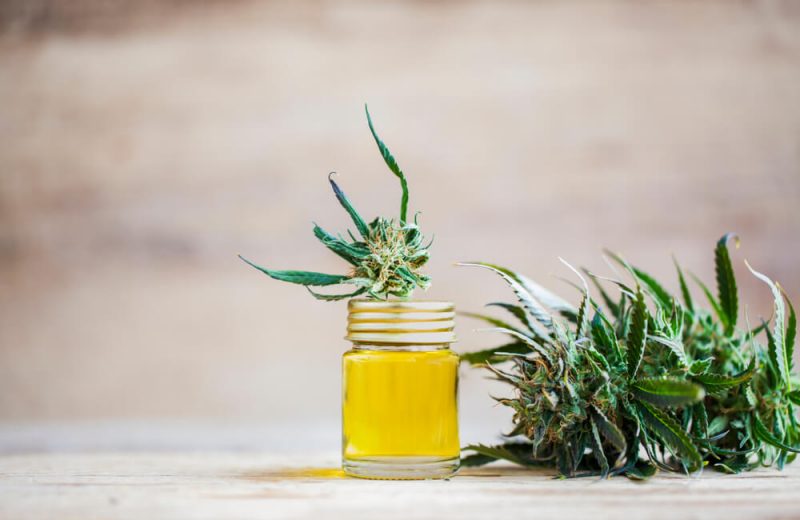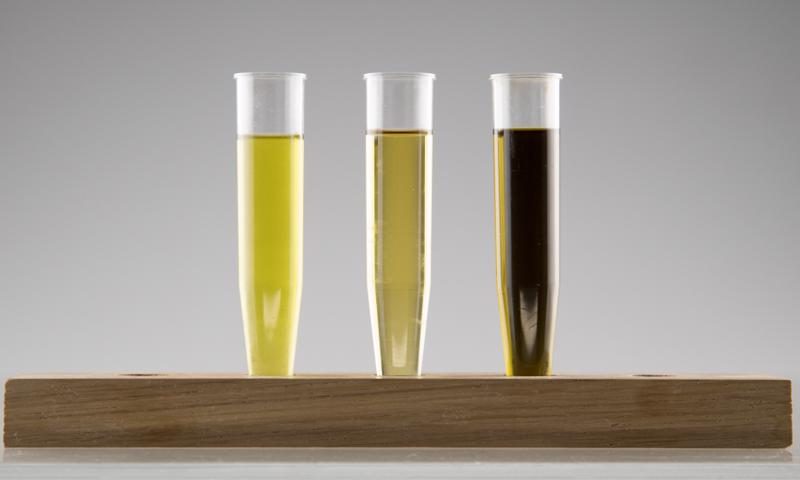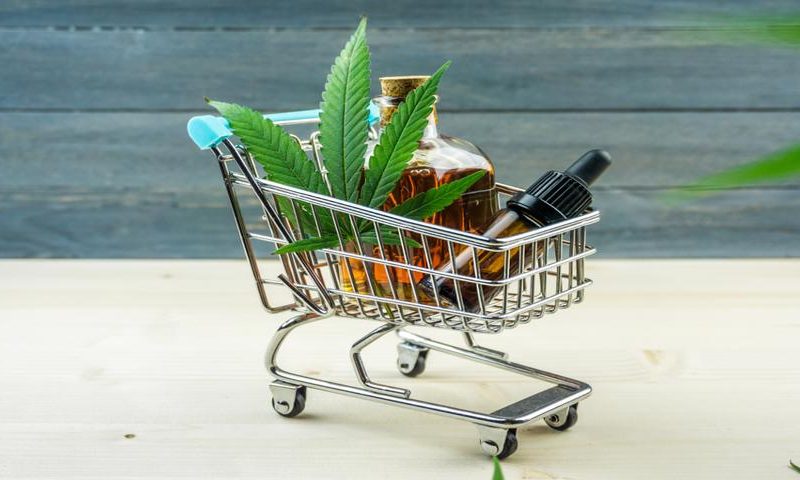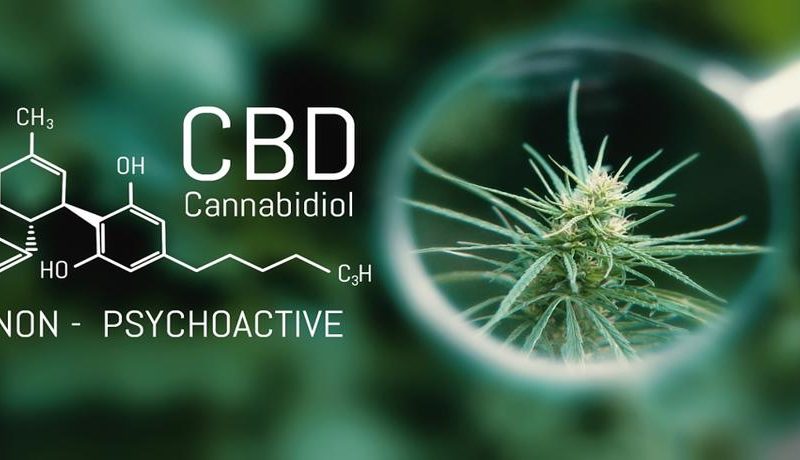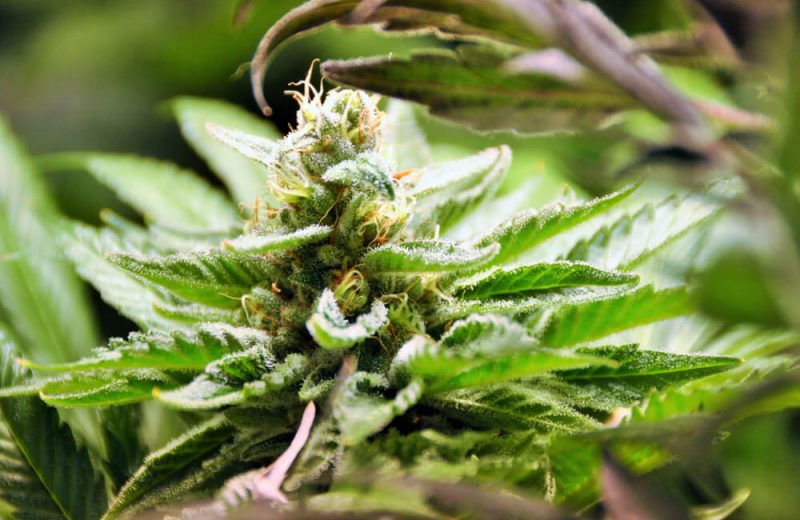With CBD oil being hailed as some sort of a “miracle-in-a-bottle” treatment for a laundry list of ailments, everyone wants to try it, including those suffering from bowel problems. This begs the question: could CBD oil for IBS be the much-awaited solution for the condition’s debilitating and vexing symptoms?
What is CBD?
Cannabidiol, or CBD as it is well-known, is a naturally-occurring, non-psychoactive chemical compound found in hemp and other cannabis plants. Not to be mistaken for its controversial cousin THC, which is the active compound that makes one feel high when they take marijuana, CBD is thought to have numerous therapeutic qualities, although the medical jury is still out on that.
While the existing evidence is vastly anecdotal, early research seems to suggest that CBD oil may help quell symptoms and relieve conditions ranging from anxiety and chronic pain to side effects of chemotherapy. Plus, it’s technically legal in all 50 US states and Washington D.C., as long its THC content is no more than 0.3 percent.
What is IBS?
IBS (Irritable Bowel Syndrome) is a very common chronic condition that impacts the digestive system. It’s characterized by a collection of gastrointestinal symptoms that usually occur at the same, and may include:
- Constipation
- Diarrhea
- Bloating and gas
- Cramping
- Abdominal pain
These symptoms tend to recur and can last for at least three months at a time. If these symptoms remain unchecked, they can cause so much discomfort and distress that they can significantly reduce work productivity and affect your daily life.
Roughly between 7% and 21% of the general population experience symptoms of IBS, although women are more susceptible than men, according to a 2015 clinical review.
Note that IBS shouldn’t be confused with IBD (Irritable Bowel Disease) because, while the two are in many ways similar and are often referenced interchangeably, they are distinct bowel conditions.
By definition, IBD is an umbrella term used to describe a group of inflammatory disorders that affect the gut. The two most notable IBD conditions are:
- Crohn’s disease, a long-term intestinal disorder in which the colon (large intestine) becomes inflamed.
- Ulcerative colitis, another life-long condition that involves inflammation of any part of the gastrointestinal tract, from the mouth to the rectum; however, the end of the small bowel typically shows the most symptoms.
In either case, the shared symptoms of Inflammatory Bowel Diseases include appetite loss, weight loss, fatigue, bloody stool, and recurrent diarrhea, as well as stomach bloating, cramping and pain.
Sadly, there’s currently no viable cure for both IBS and IBD, and neither do scientists know the specific causes of the conditions. And, in the absence of a cure, the treatment of IBS and IBD centers mainly on easing their debilitating symptoms in order to manage these digestive conditions and improve the patient’s quality of life.
In the past few years, there’s been growing interest in CBD oil for IBS as a promising treatment option. But can CBD safely and effectively relieve IBS and IBD symptoms?
Our easy-to-understand guide provides a fresh, scientific take on everything you need to know about CBD oil for IBS.
Why IBS Is Difficult to Treat
It’s worth reiterating that there’s currently no cure for irritable bowel syndrome. This is probably the single most significant reason why physicians often have a tough time treating IBS. Compounding the issue, the clinical and scientific community cannot seem to pinpoint the exact cause of IBS.
Nonetheless, a combination of factors is believed to play a role, and they include:
- Genetics – if you have a family history of IBS, you are more likely to develop the condition.
- Mild celiac disease – CD can damage your small intestine, causing symptoms of IBS
- Hormonal changes – Unusual levels of serotonin in the colon are known to have an adverse impact on your bowel movements, which may cause IBS symptoms.
- Stress and depression – Prolonged bouts of stress, anxiety or depression can affect your immune system and have been linked to IBS symptoms. This is especially the case if you have overly sensitive nerves in the gut.
- Food triggers – Certain foods like dairy, beans, or dried foodstuff, especially in combination with stress, may trigger IBS.
- Irregular bowel movements – IBS has been linked to food moving through the gastrointestinal tract (particularly the colon) too slowly or too quickly.
Symptoms of IBS and IBD often vary from one person to another. And not all of the well-known symptoms like diarrhea, bloating, cramping, and stomach pain appear on a single patient, making it much more difficult for clinicians to not only diagnose the condition precisely but also to treat it conclusively.
Given the lack of a cure, treatment focuses on easing or managing IBS symptoms, as well as preventing symptom flare-ups and reoccurrence. It’s a good thing that there are many ways to treat symptoms of irritable bowel syndrome — what works best for one patient may not do the trick for another.
Let’s dig a little deeper into each treatment avenue.
a) Lifestyles Changes
Lifestyle change is the first point-of-call for most physicians when it comes to dealing with IBS symptoms. Before prescribing medications, your doctor will probably recommend a raft of lifestyle and dietary adjustments that may include:
- Getting plenty of regular, physical exercise — Non-traditional workouts like yoga, breathing exercises, and Aikido can help you pull double duty: work out your core and beat stress!
- Eating small meals several times throughout the day rather than consuming huge portions once, twice or thrice a day
- Avoiding too fatty, spicy or overly processed foods
- Making sure to get enough, quality sleep
- Reducing stress and finding ways to relax
- Increasing intake of anti-inflammatory foods like oily fish loaded with Omega-3 fatty acids
- Not eating too quickly
- Avoiding alcohol and fizzy drinks
- Not smoking
- Trying probiotics to improve your gut health
At the same time, your doctor may propose that you keep a food journal to record what you eat for each meal and the resulting symptoms. This way, you will likely be able to zero in on foods that might be triggering your IBS symptoms.
The big idea here is to identify food triggers (so you can avoid them), get your digestive system revving normally again, and keep stress at bay.
b) IBS Medication
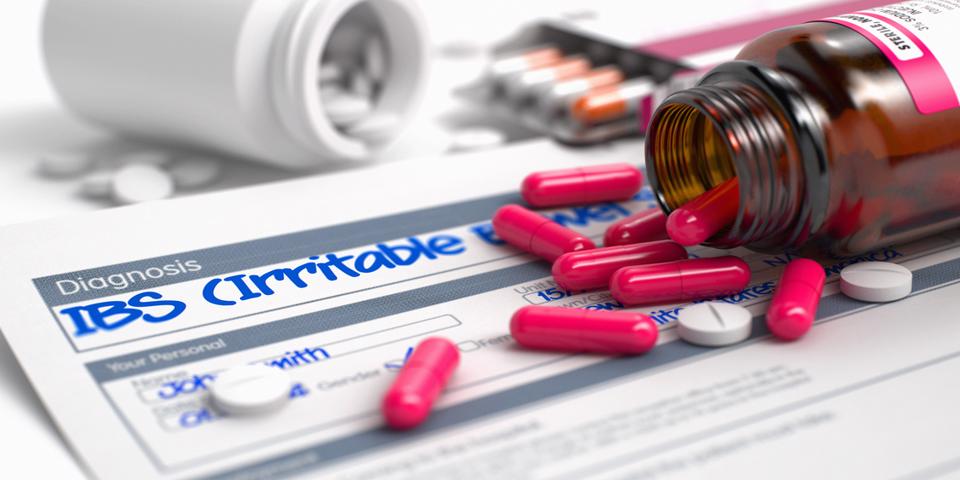
If your IBS symptoms don’t respond positively to changes in diet, lifestyle, and other home remedies, you may have no choice but to get on medication. Even so, different patients respond differently to the same IBS drugs, which is why it pays to consult with your physician when choosing the right medication for your specific conditions.
To help tailor the most effective treatment plan, your doctor will need to know which other medications and herbals remedies you’re taking. The best news is that you can safely combine doctor-prescribed medications with non-drug therapies like CBD oil for IBS.
In today’s market, there are multiple medical drugs geared towards IBS symptoms. Some are general and work on all the symptoms, while others target a specific symptom.
As a general rule of caution, it’s vital to take medications approved by the FDA especially for IBS, of which there is a handful on the market. The following drugs have been cleared by the US Food and Drug Administration for treating IBS:
- Rifaximin (Xifaxan): Approved by the FDA back in 2015, this is an antibiotic cocktail that’s supposed to be taken for 14 days, three times each day to help alleviate symptoms of IBS-D (a medical term for Irritable Bowel Syndrome with diarrhea).
- Alosetron hydrochloride (Lotronex): This is a 5-HT3 blocker approved by the FDA from IBS-D.
- Lubiprostone (Amitiza): These drugs work by way of chloride channels, helping treat IBS-C (IBS with constipation) in women 18 and over.
- Eluxadoline (Viberzi): Approved by the FDA in May 2015 for IBS-D, Eluxadoline interacts with the gut nervous system, helping reduce rapid stomach contractions that often lead to diarrhea.
In addition to these, your doctor may prescribe medications to target specific IBS symptoms. These symptom-specific drugs include:
Antidepressants – These medications help reduce the effects of depression, anxiety, and stress, all of which can contribute to IBS symptoms. Examples of popular antidepressants include Celexa (citalopram), Zoloft (sertraline), and Prozac (fluoxetine).
Laxatives – You have probably used laxatives before to ease constipations. Examples include MilaLAX, milk of magnesia, and lactulose. Lubiprostone (Amitiza) and linaclotide (Linzess) are recommended by the ACG.
Antispasmodics – As the moniker suggests, these drugs help ease stomach muscle spasms and therefore reduce abdominal cramping and pain. Hyoscyamine and belladonna alkaloids are two classic antispasmodics, but you can use herbal remedies like peppermint oil as well.
Fiber supplements – If you’re not getting enough fiber from your diet, you can use supplements. These are designed to ease constipation.
Antidiarrheals – If diarrhea is your predominant IBS symptom, you can use antidiarrheals, the vast majority of which are meant to slow down fast bowel contractions. Diphenoxylate and loperamide are excellent examples.
Probiotics – Most scientists believe that IBS symptoms are caused or worsened by a lopsided gut microbiome, a cluster of bacteria and yeast that inhabit our digestive tract. Probiotics help restore the subtle balance of microbiome in your gut, preventing constipation, diarrhea, gas, bloating and other IBS symptoms.
c) Managing your Diet
Staying on top of your diet when you have irritable bowel syndrome or IBD may require a bit of planning but it’s often worth every effort.
Aside from reducing meal portions, it’s important to eliminate food triggers, such as hard-to-digest sugars, fatty foods, dairy, fried junk, and sometimes beans. You will be glad you did when diarrhea, constipation, cramping, and other IBS symptoms are no longer taking a toll on your digestive tract and weighing you down in your daily life.
In some cases, gluten, insoluble fiber, dried foods, caffeinated drinks, processed sugars, alcoholic beverages, broccoli, cabbage, cauliflower, soda, and even chocolate could be the culprits for your IBS symptoms. It might be best to seek medical advice before you skip some of these health-critical foods, though.
For some patients, incorporating herbs and spices like chamomile, peppermint, and ginger into your diet may help get rid of some IBS symptoms. This is where a gastrologist [The specialty is gastroenterology, and they would be unlikely to suggest herbs or spices. Maybe you mean a nutritionist?] or dietician might come in especially handy.
How Can CBD Help With IBS?
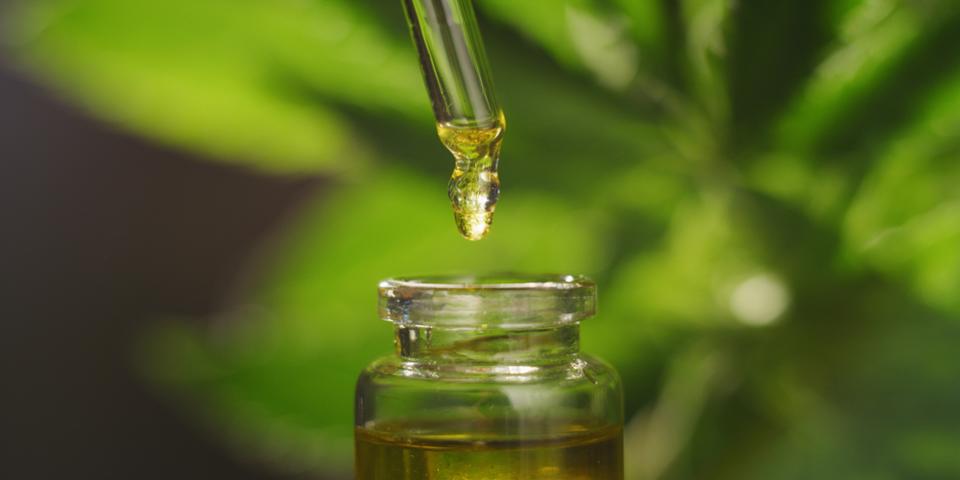
Sufferers of IBS and IBD often feel that they are diving into the deep end of the pool when looking for treatment because clinicians can’t offer them an outright cure.
Rather, doctors are likely to prescribe medicines based on specific symptoms, which leaves the patient with a cabinet full of antidiarrheal, antidepressants, laxatives, antispasmodics, probiotics, and so forth. Most of these IBS drugs come with a plethora of side effects, all of which may exacerbate your situation.
Lucky for you, CBD oil for IBS might help fill in the gap of managing the symptoms without the hassle of dealing with innumerable side effects. It’s a dual advantage!
Let’s get one thing straight right, though: CBD oil for IBS doesn’t cure the condition. Instead, just like most IBS medications in existence, it’s aimed at alleviating the various symptoms of irritable bowel syndrome and IBD.
Here’s how CBD can help with IBS:
– CBD Oil Quells Gastrointestinal (GI) Inflammation
Gut inflammation occurs when the immune system mistakenly attacks the lining of the stomach, colon, small intestine, and other parts of the digestive tract. This abnormal response can be triggered by viruses, bacterial infections, and foods in the digestive tract that the immune system sees as foreign.
For instance, in celiac disease, an autoimmune condition that has been linked to IBS, the body reacts negatively to the presence of gluten, causing massive inflammation of the small bowel.
As stated earlier, ulcerative colitis and Crohn’s disease are two common inflammatory bowel diseases that result in IBS-like symptoms like diarrhea, constipation, bloating, and cramping.
CBD oil is a well-known anti-inflammatory, and a growing body of research seems to concur that it may help reduce IBD- and IBS-related gut inflammation.
For example, in a 2011 study, scientists found that CBD oil may help minimize intestinal inflammation by activating enteric glial cells (EGC) that link between the nervous system and the immune system.
This coincides with the findings of another rat study which showed that oral CBD oil not only alleviates neuropathic pain but also reduces inflammation.
– CBD Oil Alleviates IBS-Related Pain
Stomach pain, discomfort, and cramping are some of the most common symptoms that people with IBS and IBD experience. All of these symptoms can bog you down and diminish your quality of life.
Medical researchers and clinicians are increasingly recognizing the pain-relieving potential of CBD oil for IBS.
According to several studies noted by Daily CBD Magazine, CBD may help relieve chronic pain by influencing endocannabinoid receptors and interacting with neurotransmitters in the endocannabinoid system (ECS), as well as reducing inflammation.
The ECS is a highly complex body system involved in the control or regulation of an array of biological functions like immune system response, inflammation, pain sensation, appetite, and sleep.
In a 2018 study published in the Journal of Pain Research, researchers found that CBD, especially in combination with THC, may be effective in dealing with pain related to chronic diseases like IBD, IBS, rheumatoid arthritis, and multiple sclerosis.
– CBD Oil Restores or Heightens Appetite
People with IBS and IBD usually experience constant nausea, gas, and bloating, a trifecta of symptoms that can decimate your appetite over time. Together, they can lead to severe malnutrition and drastic weight loss.
As noted above, CBD can help influence your appetite by interacting with the endocannabinoid system. In fact, one of the most notably undesired effects of CBD use is heightened appetite, which of course is a positive thing in this case.
This unlikely benefit was confirmed by scientists in a 2015 study of 117 children using CBD oil to treat epileptic seizures. Interestingly, around 30 percent of the participants said that CBD improved or expanded their appetites. [not sure that heightening appetite in IBS/IBD patients is a benefit; in kids with epilepsy, perhaps. But more food in the gut can cause more symptoms, so this is a side-effect to be wary of trumpeting as anything other than neutral, possibly not a good side effect.]
– CBD Could Reduce IBS-Related Anxiety and Depression
Depression and anxiety are the two most common psychological problems that can have a distressing impact on your health and sense of well-being. At least half of the people with IBS are likely to suffer from these two mental health disorders, according to one study published in 2015 in the journal Psychosomatic Medicine.
It’s not clear if IBS symptoms are an expression of psychological stress or whether the struggles of living with the condition make IBS patients more susceptible to anxiety and depression. Whichever the case, anxiety, and symptoms of IBS seemingly augment one another in an unending cycle.
In patients with IBS, anxiety and depressive symptoms are typically treated with prescriptions anxiolytics and antidepressants, which may have multiple side-effects, including headaches, migraines, sexual dysfunction, insomnia, irritability, and drowsiness.
What’s even worse, antidepressants such as benzodiazepines can be highly addictive and could push an IBS patient into substance addiction.
Thankfully, CBD oil has shown promise as a treatment for both anxiety and depression, which is why more people living with IBS are interested in this natural therapeutic.
In several studies involving animals, CBD has displayed assuring antidepressant-like properties, including in these 2010 and 2012 mice studies.
On an even more encouraging note, researchers have demonstrated that CBD oil could be safely used to treat anxiety and insomnia in kids with PTSD.
As noted by a team of Brazilian scientists at the University of São Paulo, the anxiolytic and antidepressant qualities of CBD could be linked to its ability to interact with ECS’s receptors for serotonin, a feel-good hormone that helps regulate social behavior and mood.
– CBD Helps with Insomnia Associated with IBS
More than 50 percent of IBS patients say they struggle with fatigue, while the condition is also related to insomnia which is typified by sleep interruptions, difficulty falling asleep, and feeling tired in the morning.
CBD oil has been demonstrated to reduce insomnia and insomnia-related fatigue in both animal and human studies, but not specifically to IBS.
For example, researchers found that CBD could help reduce sleep-related issues like insomnia for Parkinson’s disease patients in this 2014 study.
These properties are thought to be linked to CBD’s ability to act on the protein receptors for melatonin and serotonin in the brain, two neurotransmitters that play a big role in regulating sleep and mood.
How to Use CBD to Treat IBS
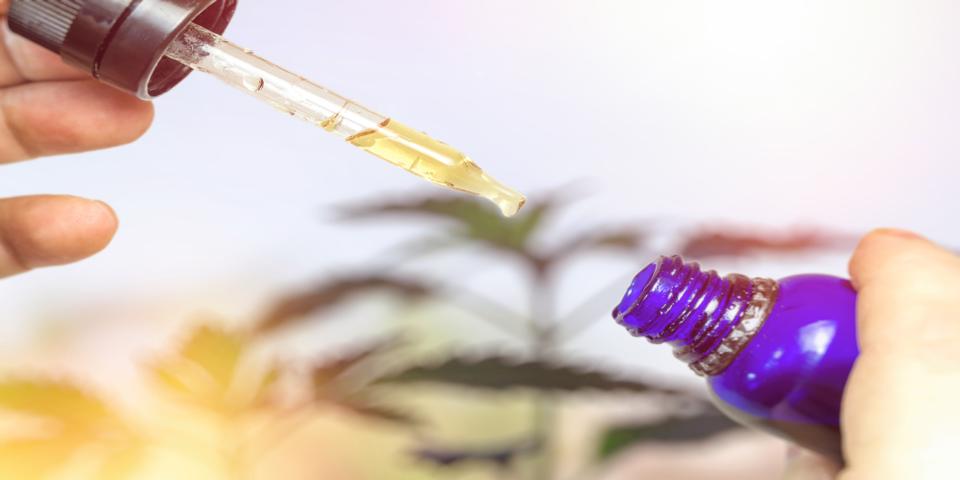
While cannabidiol is available in a variety of forms, there are three types of CBD that you need to keep in mind when deciding what’s ideal to treat your specific IBS symptoms:
1) Full-Spectrum CBD
It’s all in the name. Full-spectrum CBD has all the compounds extracted from the cannabis plant, including terpenes, fatty oils, and other cannabinoids like THC. It’s usually sold in the form of creams, edibles, vape cartridges, tinctures, and oils.
To obtain legal full-spectrum CBD oil in the US, however, it must consist of no more than 0.3% THC. However, the CBD industry isn’t closely regulated, which means actual THC content can vary from one product to another. This is something to consider if your employer carries out impromptu or planned drug tests.
2) Broad-Spectrum CBD
Broad-spectrum CBD resembles its full-spectrum counterpart in all aspects except that it contains no THC. That means broad-spectrum CBD products are completely non-psychoactive. Still, it boasts the “entourage effect” of having CBD-enhancing compounds like terpenes.
It’s generally sold in oil form.
3) CBD Isolate
It the early days of CBD craze, consumers believed that pure CBD delivered optimal results. It’s now known that CBD loaded with other cannabis compounds can deliver enhanced therapeutic qualities. If this is made from hemp plants, does it contain THC? If not, that’s something to mention.
CBD oil is CBD in its purest form and typically extracted from hemp plants which are cannabidiol-rich. CBD isolates are usually available in the form of a tincture, dense oil, or powdery crystals.
As a rule of thumb, if you have IBS or IBD, it’s best to go for high-quality full-spectrum CBD oils derived from non-GMO organic hemp cultivated without artificial fertilizers and harmful chemicals.
When it comes to taking CBD oil for IBS, there are five main methods to consider:
Tinctures
Tinctures are really what most people improperly refer to as “CBD oil.” They are obtained by suspending hemp extract in 60-70% distilled alcohol and/or water. Some producers, however, use vinegar, glycerin, and other carrier oils in place of alcohol, but they don’t yield the same level of potency as alcohol-based tinctures.
CBD tinctures are not hard to find, as they are available in plenty online, as well as from specialty stores, cannabis dispensaries, grocery stores, drug stores, and major pharmacies.
A lot of tinctures available out there are derived from CBD-rich hemp strains, so you can expect high bioavailability and absorbability of cannabidiol particularly when taken sublingually.
Tinctures are also easy to dose with a standard dropper — simply increase or decrease the number of drops as needed to hit your ideal dosage. They are super convenient and deliver a fairly long shelf-life, making this form of consumption ideal for IBS-related pain, anxiety, and depression.
Topicals
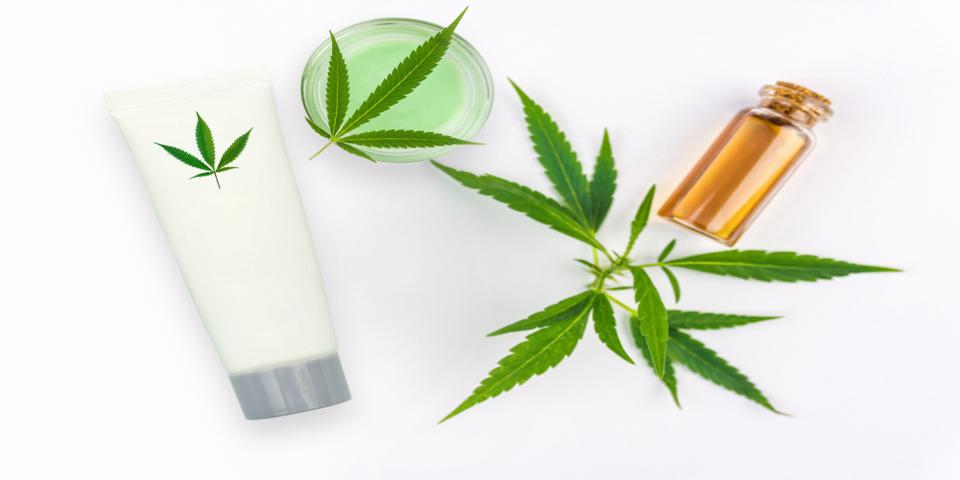
CBD topicals are designed for transdermal delivery, meaning they’re applied directly to the skin in the form of lip balm, ointment, salve, lotion, cream or transdermal patches.
This is perhaps the most straightforward and no-frills way to use CBD, as you don’t need elaborate knowledge or specialized tools to get the job done. Unfortunately, getting a precise dosage can be quite a challenge.
Generally, topicals are not ideal for taking CBD oil for IBS. However, they can be perfect for targeting localized cramping and pain around the abdomen. You can also massage a little on your temple to help relieve IBS-related stress and anxiety.
Vaping
Inhaling, smoking or vaping are some of the most effective ways to take CBD oil for IBS. Because CBD hits your lungs and gets absorbed into the bloodstreams in seconds, vaping often delivers the quickest therapeutic effects.
You can vape CBD oil and tinctures with either a table or a portable vaporizer. (Want to learn more? Read: How to Vape CBD Oil.)
Some studies have shown that vaping CBD oil can result in an absorbance of 34-56 percent in a matter of 10 minutes or less. That’s why it’s a great option for IBS sufferers looking to gain instant relief from pain, cramping, and spasms.
It should be recalled that vaping is a fairly new method of consumption, and serious health issues may be lurking around the corner for long-term vapers. IBS patients should be more careful not to suffer a double whammy of damaged lungs and ailing digestive tract.
As of now, inhaling vape chemicals is a no-go for expectant women, as most of these potentially harmful compounds are known to traverse the blood-brain barrier of the fetus.
If you wish to vape, however, stay clear of CBD vape cartridges formulated with oil carriers or thinning liquids like vegetable glycerin, propylene glycol and MCT (fractionated coconut oil). That’s because researchers discovered back in 2017 that these compounds can indeed damage your lung tissue.
Edibles and Capsules
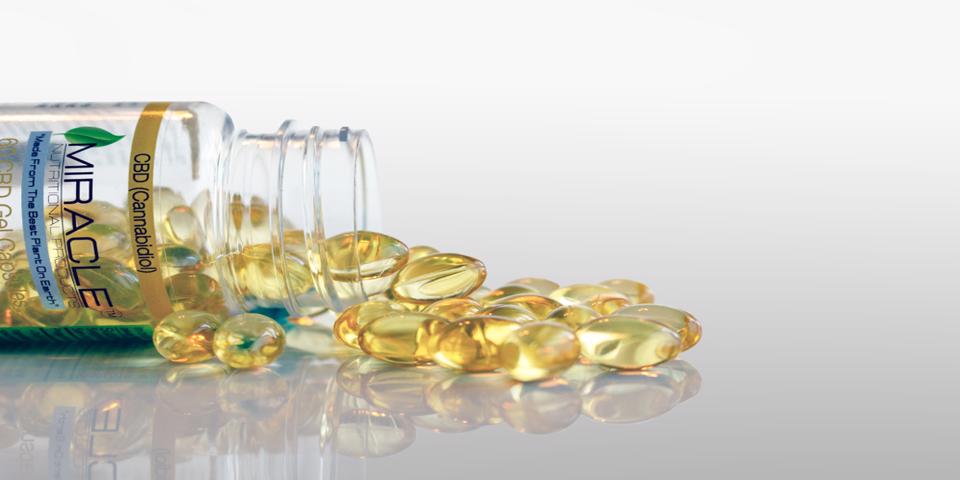
CBD is also available in capsules, pills, and edibles. These forms offer a discreet, convenient, and fun way to deliver CBD into your body.
CBD edibles come in all shapes and sizes, including CBD gummies, CBD lollipops, CBD cookies, CBD butter, CBD chocolates, CBD brownies, and even CBD cakes. Most edibles are made from full-spectrum CBD, but you can also get your hands on CBD isolate gummy bears and other flavored treats.
As well as buying ready-made CBD edibles, you can make your batch by infusing CBD oil into your pasta, butter, brownies, cookies, salads, and so forth. It’s crucial, however, to know how much CBD oil you need to add to your consumables.
Despite going through what’s called a “first-pass effect,”[This is unclear, and if it may have implications for the bowel, we should spell it out.] edibles boast a bioavailability of between 20% and 30%. However, you should take great care to avoid going beyond your ideal dose as it takes roughly 2-4 hours before the effects of CBD edibles to be felt.
Beverages
You can purchase CBD beverages as pre-made drinks such as canned coffee, tea, soft beverages, and even pre-mixed hard cider. They are available either carbonated or flat, in cans or other containers.
There are specialty stores that sell CBD beverages, but they are also available in cannabis dispensaries, drug stores, vape shops, and online.
As with most beverages, people with IBS should avoid alcoholic drinks, dairy, and other trigger ingredients. The overwhelming majority of cannabidiol in the beverage is absorbed in the gut, but a little is absorbed directly into the bloodstream by sublingual glands.
Because it’s subject to “the first-pass effect,” the bioavailability of CBD beverages is approximately 13-19 percent. You can expect the effects of CBD to kick in after up to 2 hours.
Why There Should Be More Research on CBD and IBS
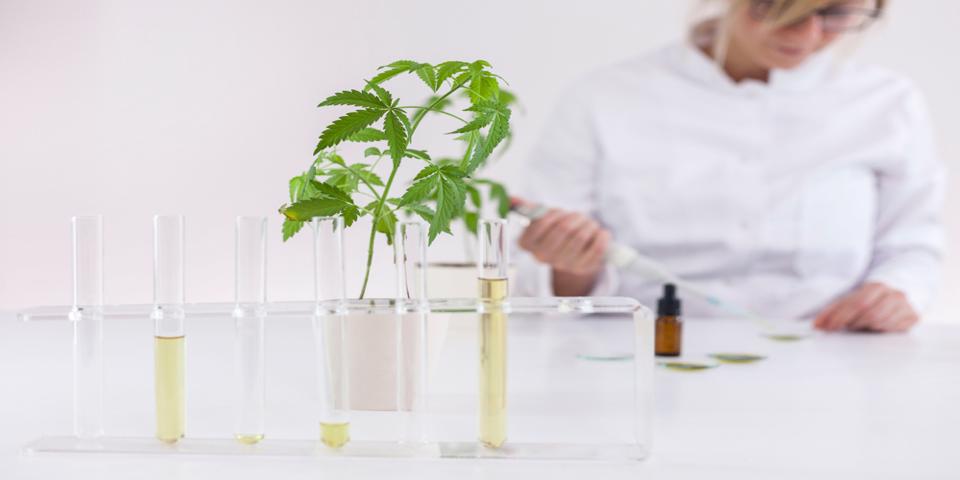
Just legalized recently, CBD oil for IBS is a topic that has only been scraped on the surface by researchers and medical professionals. The existing body of research is thin at best and there’s a clear lack of large-scale and conclusive clinical trials.
IBS has no known cure, and it doesn’t help that the symptoms themselves seem to vary greatly from one patient to the next.
Some of the studies on CBD and IBS symptoms like pain, anxiety, depression, inflammation, and insomnia have shown promising potential, but we still need umbrella research that will help clear the air of red flags and establish true efficacy numbers.
Some early test results have shown promise, and this is a promising area of CBD benefit that merits further research and attention.
What CBD Means for IBS Sufferers
IBS, alongside inflammatory bowel diseases, are some of the most bothersome bowel conditions. Affecting up to two out of every ten Americans, these conditions cost the US economy billions of dollars in lost productivity and healthcare expenditure.
At the moment, IBS has no cure–a gap that CBD oil may be fronted to bridge, but only if it’s backed with encouraging numbers from the medical research community.
A lot of the evidence is anecdotal right now, but it does seem that a lot of sufferers have seen benefits, especially when it comes to easing the condition’s debilitating symptoms.
Some research studies, either done on IBS or other related conditions, have shown that CBD oil may be a safer solution for addressing gut inflammation, abdominal cramping, diarrhea, constipation, and other symptoms of the disorder.
The long-term effects of using CBD oil for IBS have yet to be established, even though scientists are gathering patient data on an ongoing basis.
It should be noted that the CBD products are not tightly regulated by the FDA, so their safety and purity standards are often doubtful.
In light of this, it’s crucial that you consult with your physician before you start taking CBD oil for IBS, particularly if you are currently on other medications for the condition.
CBD has also been known to interact with prescription drugs like blood thinners, antidepressants, biologics, and other meds. Your doctor will help you determine if incorporating CBD into your treatment routine is the best course of action.
Even though there’s so much yet to be learned about CBD potential as a treatment for irritable bowel syndrome symptoms, it’s already getting more and more attention from IBS patients and medical professionals alike, which is why it’s a fruitful area of research.

